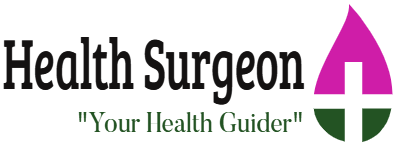How to use a dental EHR to improve patient care?

Using a dental Electronic Health Record (EHR) can significantly enhance patient care by streamlining administrative tasks, improving communication among dental professionals, and providing quick access to critical patient information. A well-implemented system can improve treatment outcomes, increase patient satisfaction, and more efficient dental practice operations. Here are several ways to leverage a dental EHR for improved patient care:
1. Comprehensive Patient Information:
A dental EHR consolidates patient data, including medical history, allergies, current medications, treatment plans, and diagnostic images. Having this information readily available allows dental professionals to make well-informed decisions about patient care. This comprehensive view of the patient’s health helps avoid potential complications due to drug interactions or pre-existing medical conditions, ensuring the safe delivery of dental treatments.
2. Real-time Charting and Documentation:
Dental professionals can perform real-time charting and documentation during patient visits. It minimizes the risk of errors associated with manual data entry, as information is entered directly into the system. Accurate and up-to-date records improve the continuity of care and enable different dental specialists within a practice to collaborate effectively when treating a patient.
3. Treatment Plan Coordination:
Dental EHRs facilitate seamless communication and coordination between dentists, dental hygienists, and other staff members involved in patient care. For instance, when a dentist creates a treatment plan, other team members can instantly access it, providing consistency and continuity in patient management. This teamwork ensures that each patient receives the most appropriate and timely care.
4. Appointment Reminders and Follow-ups:
By integrating communication tools with dental EHR, it is possible to send automatic appointment reminders to patients through email or SMS. These reminders have a positive impact on reducing the number of missed appointments, improving scheduling, and ultimately enhancing patient care while increasing the practice’s efficiency. Additionally, dental professionals can use the EHR to follow up with patients after treatments or procedures, ensuring their recovery is progressing as expected.
5. Decision Support Systems:
Some advanced dental EHRs incorporate decision support systems that offer evidence-based treatment suggestions and best practices. These tools can aid dentists in making informed decisions and recommendations for specific patient conditions, leading to more precise diagnoses and treatment plans.
6. Imaging and Diagnostics:
It can integrate with imaging and diagnostic systems, such as digital radiography and 3D imaging. This integration enables easy access to X-rays, intraoral scans, and other diagnostic images directly from the patient’s electronic record. Dental professionals can review these images efficiently, leading to faster diagnoses and timely treatment interventions.
7. Patient Education:
Dentists can use Dental Electronic Health Records (EHRs) to provide patients with educational materials and resources regarding their oral health, treatment options, and preventive measures. By educating and informing patients, they are more likely to take an active role in their dental care and follow treatment recommendations, leading to improved oral health outcomes.
8. Secure Data Storage and Backup:
It ensures secure data storage and regular backups, protecting patient portal information from physical damage, loss, or unauthorized access. Data security and privacy are critical in maintaining patient trust and complying with healthcare regulations.
9. Data Analytics and Quality Improvement:
Dental EHR can generate valuable insights through data analytics. Dental practices can analyze treatment outcomes, appointment patterns, and patient satisfaction metrics to identify areas for improvement. This data-driven approach enables continuous quality enhancement in patient care and operational processes.
Conclusion
A dental Electronic Health Record (EHR) system offers numerous advantages in improving patient care. From centralizing patient information to streamlining workflows and leveraging data for analysis, dental EHRs can enhance communication, efficiency, and treatment outcomes within dental practices. Embracing this technology can lead to higher patient satisfaction and better treatment adherence.




